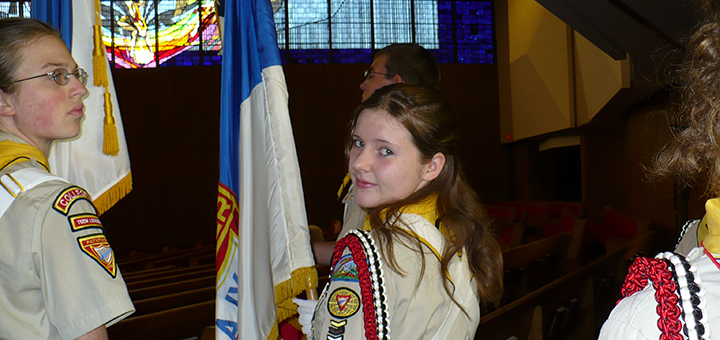There has been a lot of talk lately about my generation, the millenialls, leaving the church in droves. There have been numerous books and studies concerning this problem and what the church can do to dam the flow. If the pattern continues, by the time our current church leaders are retiring there won’t be anyone prepared to relieve them. This is certainly a concern for the future of our church.
Influenced by change
Expectations about church involvement and attendance have shifted over the years. As Adventists we claim to be Biblically grounded, not changing on the whims of society. However, for all our bragging we are influenced by society. I spent more than a year extensively studying the Medical Cadet Corps and found that Adventists closely followed society in relation to opinions about the government and military service. Adventists are influenced by society and we are changed by society.
The same has happened with church attendance. It used to be a cultural expectation for Americans to attend church. The older generations could count on their peers noticing and sometime commenting on any lapses. Adventists and most other Americans attended church regularly, just as mainstream society expected.
Now, society has changed.
The expectation for regular church attendance has disappeared from mainstream society.
My peers and I do not feel as much pressure to regularly attend church. We are reflecting a cultural change in American society. I do not expect my friends to attend church every week and they feel the same way. It is not necessarily a decrease in spirituality that keeps my generation away, but more of a change in expectations.
What worked for me
The question remains: What can we do to keep young people in the church? I’m not here to talk about what has been suggested by others, but rather what has worked for me.
Obviously, I am still an attending and involved member of my church. I don’t stay for the varied song services or the dynamic Bible studies. Currently, my main reason for staying in the church is my involvement and responsibilities in Pathfinders.
I have been a staff member for over three years and enjoy interacting with the Pathfinders at church. I know for myself that my spiritual walk with God will always be changing and fluctuating. On the other hand, my involvement in Pathfinders provides a steady reason for church attendance and participation while my spiritual life sorts itself out.
I believe the key to retaining my generation is moving young people from spectators to participants.
I became a participant when I served on my first committee at 14. My father and I were elected to the committee that planned the annual church campout. My specific responsibility was the write and direct short skits to reflect the worship talks given throughout the weekend.
The skits turned out well, but the success was not all my own. Nervous and shy about my new responsibilities, I was encouraged by the presence of my father sitting next to me in the committee meetings. I believe my personal experience could be applied on a much larger scale to prevent a leadership void in our church.
Young people do not always have the experience needed to be leaders, but there are many in the church who could mentor them. Through involvement and development of leadership skills we give young people a tangible reason to remain involved in the church.
Model for church mentorship
Here is a suggested model for including more young people in committees and in church leadership through a mentorship program:
- Start young. Academy and college aged students are at the perfect age to begin training for future leadership. They are already looking for reasons to retain their faith and involvement.
- Assign mentors. Any young person being considered by the nominating committee should either select or be assigned a mentor. That mentor can be a relative, close friend, or someone experienced in the area of interest.
- Ballots and elections. I would suggest that the young person and mentor be elected as one person on the ballot. The young person will be the official committee selection. The mentor’s priority will be the development of the young person’s abilities and leadership, not the agenda of the committee.
This model is simple and broad but I see in it a purpose to train and involve young people in the leadership of their local church. If implemented quickly, perhaps the leadership gap can be avoided and our young people will become participants instead of spectators. Dedicated involvement will decrease the likelihood of an absent generation.
More from this author: Why We Need to Talk About Sex in Church
Kelti Barcelow (pictured) graduated from the University of Nebraska—Lincoln in May 2020 with a master’s degree in architecture. She and her husband, Travis, live in Orlando where he is pursuing a doctorate in anesthesiology.










